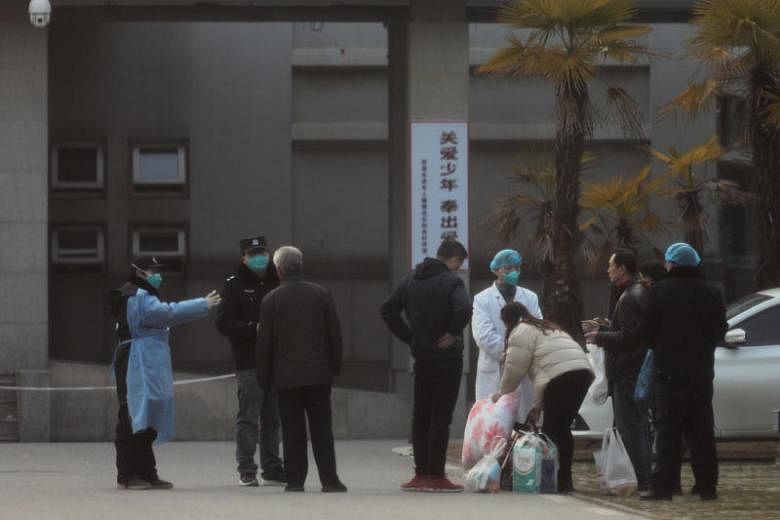BEIJING (CHINA DAILY/ASIA NEWS NETWORK) - President Xi Jinping said on Monday (Jan 20) that the relevant departments must put people's health first, after it was revealed that there had been a sharp increase in the number of people infected with a new strain of coronavirus.
His words should prompt the mobilisation of all available resources to prevent a repeat of the Sars (severe acute respiratory syndrome) epidemic of 2003.
His remarks came after health authorities on Monday confirmed many new cases of the virus and a third death from the outbreak, bringing the total number of reported cases to 224.
That the new cases include people outside Wuhan, capital of Hubei province, where the virus was first detected last month, marks the spread of the virus to other parts of the country.
Outside the Chinese mainland, there have been confirmed cases in countries such as Thailand, Japan and the Republic of Korea.
To be fair, medical workers have done a good job by identifying the novel virus in such a short period of time.
Yet in hindsight, Wuhan local health commission officials might have been hasty in considering human-to-human transmission unlikely, citing a lack of clear evidence when the first cases emerged, which were traced to a local seafood market believed to be the epicentre of the outbreak.
Since then, there have been reports about patients diagnosed with the new coronavirus who had no exposure to the market.
In response to the latest development, Li Gang, director and chief physician of the Wuhan Centre for Disease Control and Prevention, on Sunday said "possibility of limited human-to-human transmission cannot be ruled out", though he insisted "the risk of continuous human-to-human transmission is low".
Yet such remarks offer little reassurance given that after the Sars virus first infected humans, it mutated into a more virulent strain. And the stark reality the country is facing is a wider spread of the virus fuelled by the Spring Festival travel rush that will see hundreds of millions of people travelling nationwide or overseas during the holidays.
The National Health Commission said in a statement on Sunday that the pneumonia outbreak is still "preventable and controllable", and undoubtedly lessons were learned from the Sars epidemic.
Yet the fact that the source of the virus has still not been identified and that its transmission path has not been completely mapped calls for urgent and more effective detection and quarantine measures to curb the spread of the epidemic.
The health authorities can never be too cautious when dealing with public health hazards, especially when fighting a completely new strain of deadly virus.
While measures such as beefing up monitoring and disinfection efforts, and conducting temperature detection at airports and train stations, as Wuhan has already taken, are indispensable, it is also important to keep the public fully informed.
This is a lesson learned during the Sars outbreak at a very high cost in human lives. The country should not have to learn that lesson all over again.
China Daily is a member of The Straits Times media partner Asia News Network, an alliance of 24 news media organisations.











